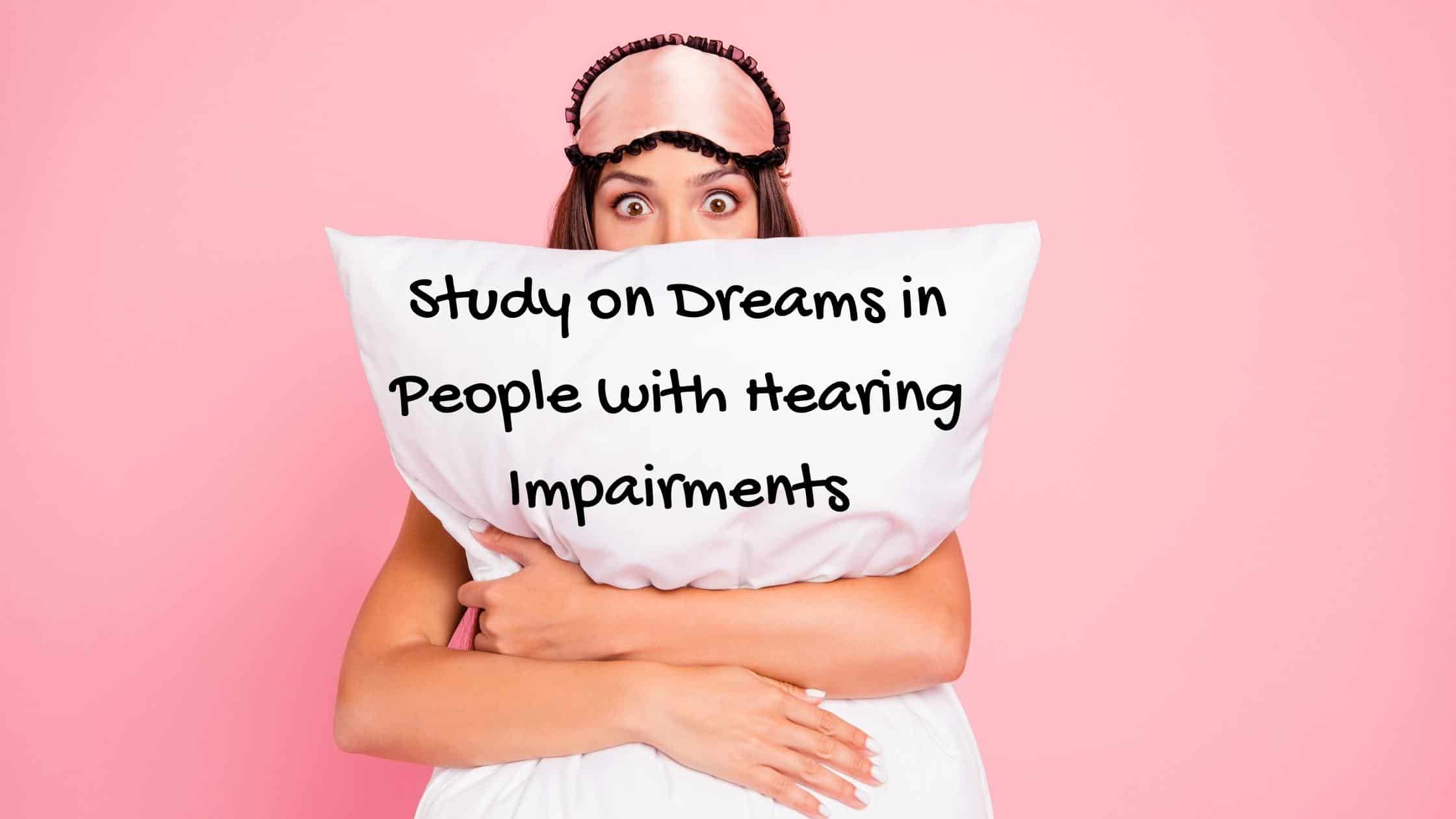
Are you a dreamer? Some people report having vivid dreams every night, while others never seem to remember their dreams in the morning. Along with differences in remembering dreams, people report all sorts of different types of dreams, including a huge range of emotions, feelings, sights, smells, and sounds. But do people with hearing loss dream differently? Let’s take a closer look at the research.
How Do You Dream?
People are always curious about their dreams. We usually have no control over our dreams. Not only that, but each person dreams in very different ways. Some people report dreams that play out like movies, while others describe dreams as more of a feeling than a vivid image. It’s not clear what exactly affects dreams. Whether personality or lifestyle makes you dream differently, all we know is that everyone dreams in their own unique way.
Do People with Hearing Loss Dream Differently?
Researchers have been very curious to find trends in dreams. For example, do people born without sight have visual dreams? And do people with hearing loss dream without sound?
Here’s what the research says about hearing loss and dreams. One study from 2011 found that people with hearing loss can still dream in sound. Researchers talked to a small group of 14 people with hearing impairments and asked each one about their dreams. The participants still reported being able to hear in their dreams, despite having limited hearing during their waking hours.
Meanwhile, a more recent study from 2016, published in Dreaming, found that people who have hearing loss do in fact dream a lot differently. The researchers talked to over 400 high school students. 86 students had hearing loss and 344 students had normal hearing. They noticed some striking results.
The students with hearing loss had significantly more vivid dreams. This included an array of senses, including smell, taste, pain, and temperature changes. They also reported experiencing a number of emotions while dreaming, including anger, fear, hope, and surprise. Finally, they were also able to recall their dreams more easily, and also reported experiencing lucid dreaming more often.
And what about the group of students with normal hearing? They also reported a range of sensations and feelings while dreaming, but with less frequency. And they did report hearing in dreams more often than the students with hearing loss.
Sensory Compensation
Having more vivid dreams may sound like a fun experience, but it could be a sign of sensory compensation. When one of the senses is weakened, the other senses may become stronger as a way to compensate for the sense that’s weakened. For example, if you have hearing loss, you may have noticed that your sight, touch, or smell are more sensitive than before. This can be very adaptive, as your other senses try to fill in the gaps in what you’re hearing. However, sensory compensation cannot make up for a lost sense.
Studies like this one show that sensory compensation occurs during waking hours and during dreams. That’s why people with hearing loss may report having more vivid dreams than those without hearing loss.
Untreated Hearing Loss
Untreated hearing loss can affect you in many tangible ways as well. Hearing loss makes it harder to communicate with family and friends. You spend most conversations straining to hear and asking people to repeat themselves. Despite all the extra effort trying to hear, you still can’t quite follow the conversation. This becomes frustrating for everyone. Before long, you may withdraw from social situations, spend more time alone, and feel lonely and isolated.
Schedule a Hearing Test
If you or a loved one has hearing loss, book a hearing test. A hearing test usually takes about one hour. During the test, we’ll look in your ears to check for any visible signs of damage in the ear canal or middle ear. Next, we’ll ask you to wear a pair of headphones and play a series of sounds. All you’ll need to do is tell us when you hear a sound. Finally, we’ll take some extra time to get to know you. Finding out about your lifestyle and hearing needs helps us recommend hearing aids that will fit perfectly into your life. Contact us today to schedule an appointment!
